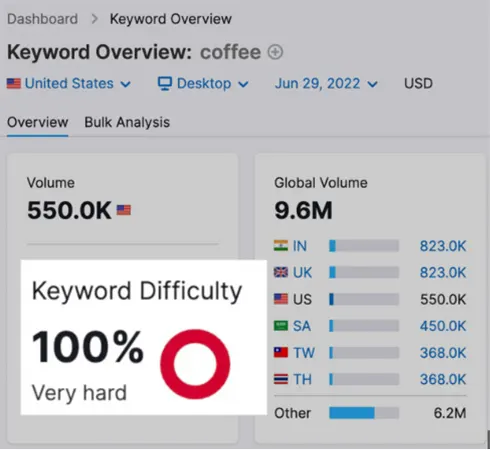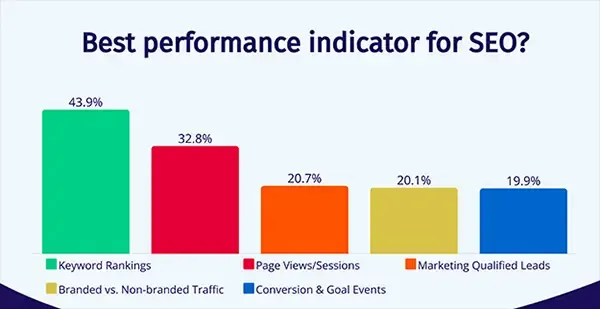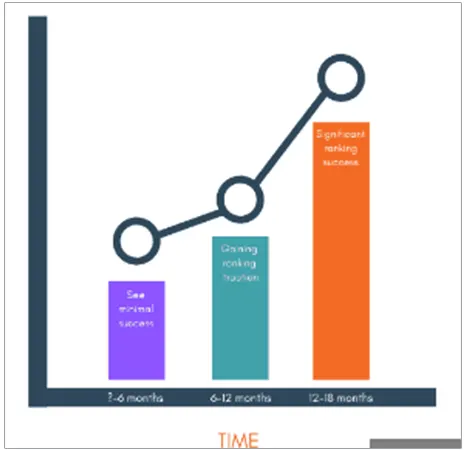Key Takeaways:
- The most significant aspect of effective SEO is mastering keyword analysis.
- The process of keyword analysis involves researching, evaluating, and picking up phrases that will increase the visibility of the website.
- Make sure that when you are integrating these keywords into your content, look for a balance between keyword density and readability.
- Staying updated with the latest trends and search engine algorithms will enhance your SEO strategy.
As technology advances, the world of search engine optimization (SEO) continues to expand and become increasingly competitive. Among the chief aspects of its successful campaigns is keyword analysis.
Google’s search algorithm utilizes over 200 elements to rank a website, which makes thorough, high-quality keyword research essential. Mastering this strategy helps businesses reach their target audience and ensures that websites rank higher in portal results.
Thus, in this article, we will take a comprehensive look at various aspects of its study, from understanding the basics to implementing advanced and local SEO tips for effective results.
Keep reading to learn more.
Understanding the Basics of Keyword Analysis

It is a vital aspect of SEO, as it consists of examining and determining the best keywords to target for better web page visibility. This process includes researching, evaluating, and choosing the phrases that will benefit your website’s optimization the most.
The aim is to diversify your blog, boost traffic, boost online visibility, and help your site rank higher in search engine results pages (SERPs).
There are many factors to consider when conducting this process, such as search volumes, competition, relevancy, and user intent. A site owner should assess the importance of keywords, and competition for specific keywords, as ranking for highly competitive ones can be challenging.
Focus on relevant and less competitive tags to increase your chances of ranking higher in SERPs.
Utilizing keyword analyzer software can greatly help in this process. These tools provide vital insights and data on its performance, allowing you to make informed decisions when selecting the best ones for your website.
Moreover, this software can also reveal the intent behind users’ queries, enabling you to optimize your content according to their needs and interests.

Optimizing Content for Chosen Keywords
Once you have identified the best ones to target, it’s pertinent to optimize your site content accordingly. Integrate these words into your webpage stuff, such as articles, product descriptions, and meta tags to enhance your site’s portal ranking.
Moreover, ensuring that your chosen labels are prominent in your subject improves your website’s relevancy score, leading to greater rankings in search results.
When adding them to your essay, you want to maintain a balance between its density and readability. While it’s necessary to include your primary tags throughout the article, overdoing it can lead to poor user experience and potentially harm your site’s SEO.
You can calculate the density by dividing the number of tags by the total number of words on the page and multiplying it by 100. For example, if a particular word is used 20 times in a 1000-word article, therefore the density will be 2%.
Do You Know?
A density of 0.5-1% is considered to be appropriate as it avoids any unnatural stuffing.
Monitoring and Analyzing Keyword Performance
Keeping track of them in SERPs allows you to measure the efficiency of your SEO efforts and make necessary adjustments to rank higher.
Moreover, monitoring their performance provides valuable insights into your competitor’s strategies, enabling you to adapt and have an edge.
Various search engine optimization tools are available, such as Google Analytics and Search Console, which can provide necessary data on your keywords’ performance and user engagement. Periodically examining this data enables you to observe trends, opportunities, and areas for improvement.
Adapting to Changes and Ensuring Long-term Success

The world of SEO is always growing, and adapting to these changes is vital for long-term success. Staying updated on the latest trends, best practices, and search engine algorithm updates can significantly impact your analysis and its overall strategy.
Regularly reviewing and updating your tag list, along with monitoring your competitors and industry trends, is pivotal to maintaining your webpage’s high portal ranking.
You can create content that aligns with your audience’s needs and interests by considering user intent in your survey. Focusing on providing valuable, relevant, and engaging articles will strengthen your site’s authority and trustworthiness and also help you achieve long-lasting success.
Conclusion
Mastering keyword analysis is paramount for an effective SEO strategy. Understanding the basics, optimizing essays based on chosen words, monitoring their performance, and adapting to changes, can significantly increase your chances of online success and drive organic traffic to your website.
Remember, organic SEO is a long-term process. While a specific term or phrase may rank quickly, climbing up the SERPs is a long journey.






